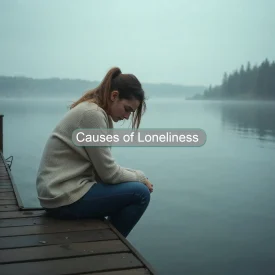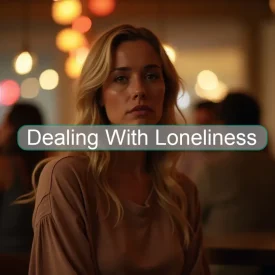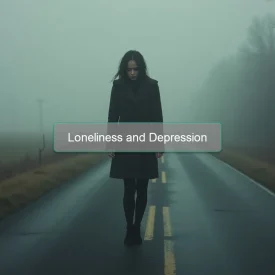Feeling single and lonely is a common experience that many people face at some point. Research shows that a large portion of singles report feeling lonely regularly.. Being single means not having a romantic partner, and feeling lonely is the emotional sense of being disconnected or isolated from others. But if you are single and lonely, remember that many people feel this way, and these feelings do not have to control your life.
There are practical ways to move beyond feeling single and lonely. By shifting your mindset, building new connections, and caring for yourself, you can turn solitude into a time of growth.
Embrace being single as an opportunity to discover yourself, deepen friendships, enjoy your passions, and seek support when needed. These steps help reduce loneliness and bring happiness in your independence.
Key Takeaways:
- Loneliness is common for many singles, especially young adults, but you can manage it by understanding its causes.
- Loneliness can affect your health, causing anxiety, poor sleep, and weak immunity, so it’s important to take care of yourself.
- Not all single people are lonely or selfish; many enjoy strong friendships and freedom without a partner.
- Doing hobbies, practicing self-care, volunteering, and building connections can help you feel happier alone.
- Being single is a chance to grow and enjoy life, turning loneliness into strength and joy.
Understanding Loneliness in Single Life
Let’s explore what loneliness really looks like for singles and why it’s more widespread than you might think.
What Does It Mean to Be Single and Lonely?
Being single means not having a romantic partner. This can happen because you choose it, because of your situation, or because you’re in between relationships.
Loneliness is different—it’s the feeling you get when you don’t have meaningful connections or support. Even if you’re around people, you can still feel emotionally empty.
For single people, this feeling can be stronger because society often suggests that being in a relationship equals happiness, which can make the loneliness feel worse.
Prevalence and Statistics on Loneliness Among Singles
More than half of adults in the U.S. say they feel lonely regularly. If you’re single, this feeling is even more common — about 39% of singles feel lonely every week compared to 22% of married people.
Around the world, roughly 1 in 4 adults feel lonely regularly, and these numbers have gone up a bit since the pandemic.
In surveys from 2025, about 57% of Americans reported feeling lonely, with many singles mentioning that feeling disconnected from others is a big part of it.
Loneliness Across Different Demographics (Age, Gender, Location)
Young adults (18-22) report the highest rates, with 79% feeling lonely—Gen Z is hit hardest.
Gender differences vary: Some studies show men feel lonelier (32% never lonely vs. 22% for women), while others indicate similar rates (57% men, 59% women).
Location matters too—urban areas like Washington D.C. have 70% singles and higher loneliness, while rural spots may amplify isolation due to fewer social opportunities.
Common Causes of Feeling Lonely While Single
Several factors contribute to single and lonely feelings, from external pressures to personal changes. To explore more in-depth causes, including psychological and environmental factors, check out our guide on the causes of loneliness.
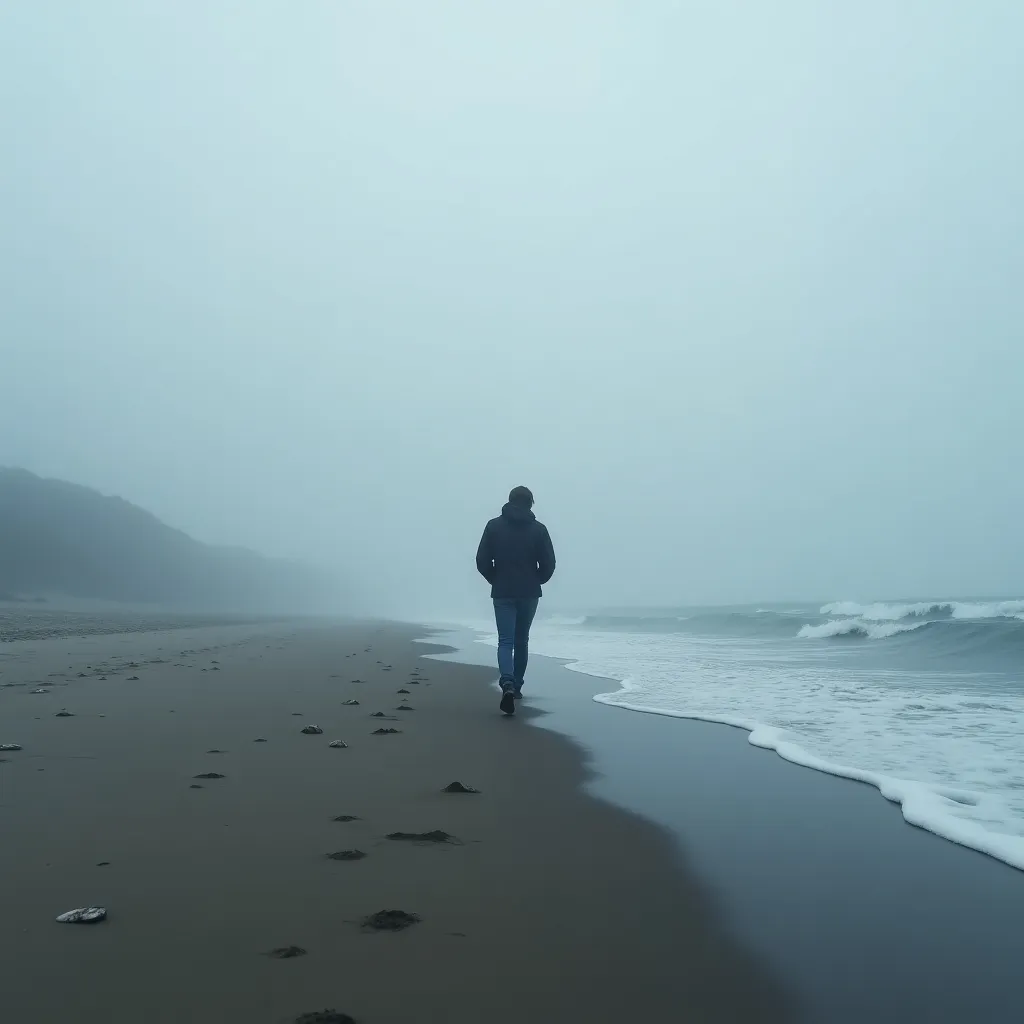
Feeling the Pressure to Be in a Relationship
Society often gives the message that being single isn’t quite enough, and that having a partner is the key to happiness.
Because of this, singles can sometimes feel left out or like they don’t fit in, especially during holidays or social events where couples seem to take the spotlight.
Missing the Closeness of Romantic Connection
Without a romantic partner, it’s common to miss everyday affection, deep conversations, or physical touch. People naturally want to feel close and connected, so when that’s missing in romantic ways, it can leave a noticeable emotional gap.
Going Through Life Changes Like Breakups or Loss
When a relationship ends—whether through breakups, divorce, or losing a partner—it shakes up your daily life and your support network.
This can lead to a strong feeling of loneliness. Divorce or losing someone close can feel like starting over, especially if friends shared with that partner start to drift away.
Feeling Isolated Because of Work, Moving, or Choices
Sometimes jobs get really busy, or moving to a new place cuts down on who you see in person. Choosing to live independently or work remotely can mean fewer chances for casual hangouts or social time, which can make a person feel unexpectedly alone.
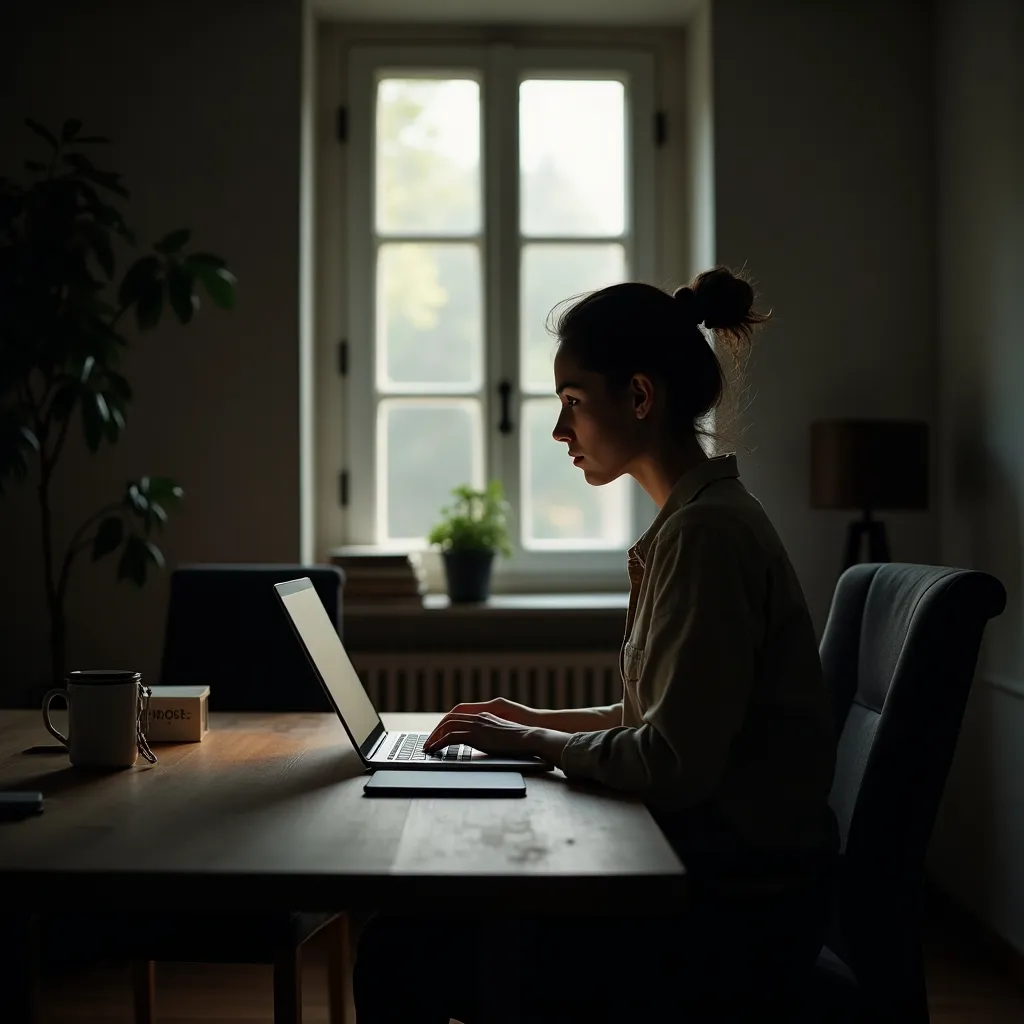
Struggling with Social Media and Comparing Yourself to Others
Watching other people’s relationship highlights on social media can leave you feeling envious or less confident.
When you constantly compare your life to the perfect moments others share, it can make your real-life connections seem lacking or unsatisfying.
Strategies to Overcome Loneliness as a Single Person
Practical steps can help you feel stronger and more connected. They can bring more happiness and meaning to your life. For more strategies on dealing with loneliness through self-care and connections, explore our article on dealing with loneliness.

Building and Nurturing a Supportive Social Network
Strengthening your current friendships can provide a solid foundation for feeling connected. Try scheduling regular catch-ups, whether it’s a weekly coffee or a monthly dinner, to keep those bonds strong.
Joining clubs or groups that match your interests is a natural way to meet new people who share your passions. If building a network feels challenging, discover ways to overcome loneliness without friends by focusing on self-care and personal growth in our guide on overcoming loneliness without friends.
Engaging in Hobbies, Interests, and New Activities
Diving into hobbies like painting, hiking, or cooking can bring joy and open doors to new friendships. Trying new classes or activities keeps life interesting and expands your social circle with people who have similar interests.
Practicing Self-Care and Developing Self-Love
Taking time for yourself to relax and recharge is essential. Activities like reading, exercising, or practicing mindfulness help build inner peace and reduce self-criticism, making it easier to engage with others positively.
Volunteering, Community Involvement, and Giving Back
Volunteering connects you to meaningful causes and people, creating a sense of purpose and belonging. Local events and charities offer opportunities for genuine interactions without pressure, helping you build connections while making a difference.
Mindful Use of Dating Apps and Online Communities
Using dating apps can be fun and help you meet new people, as long as you set healthy boundaries to avoid burnout. Online forums for singles offer support and shared experiences, providing a space to connect beyond romance.

AI Companionship: Exploring New Connections
AI companionship is becoming an interesting option for those seeking interaction and support. An AI girlfriend can offer conversation, emotional support, and a non-judgmental presence. To learn more about this emerging technology, check out What is an AI girlfriend, which explains how AI companions work and their potential benefits.
AI companions can complement your social network by providing a unique form of connection tailored to your needs.
How Loneliness Affects Singles
Feeling lonely can impact your health in serious ways. Loneliness can increase stress, affect your sleep, and even raise your chances of heart problems, dementia, and a weaker immune system.
Mental Health Impacts
Feeling lonely doesn’t just affect your emotions—it can also impact your mental health in ways that make everyday life harder.
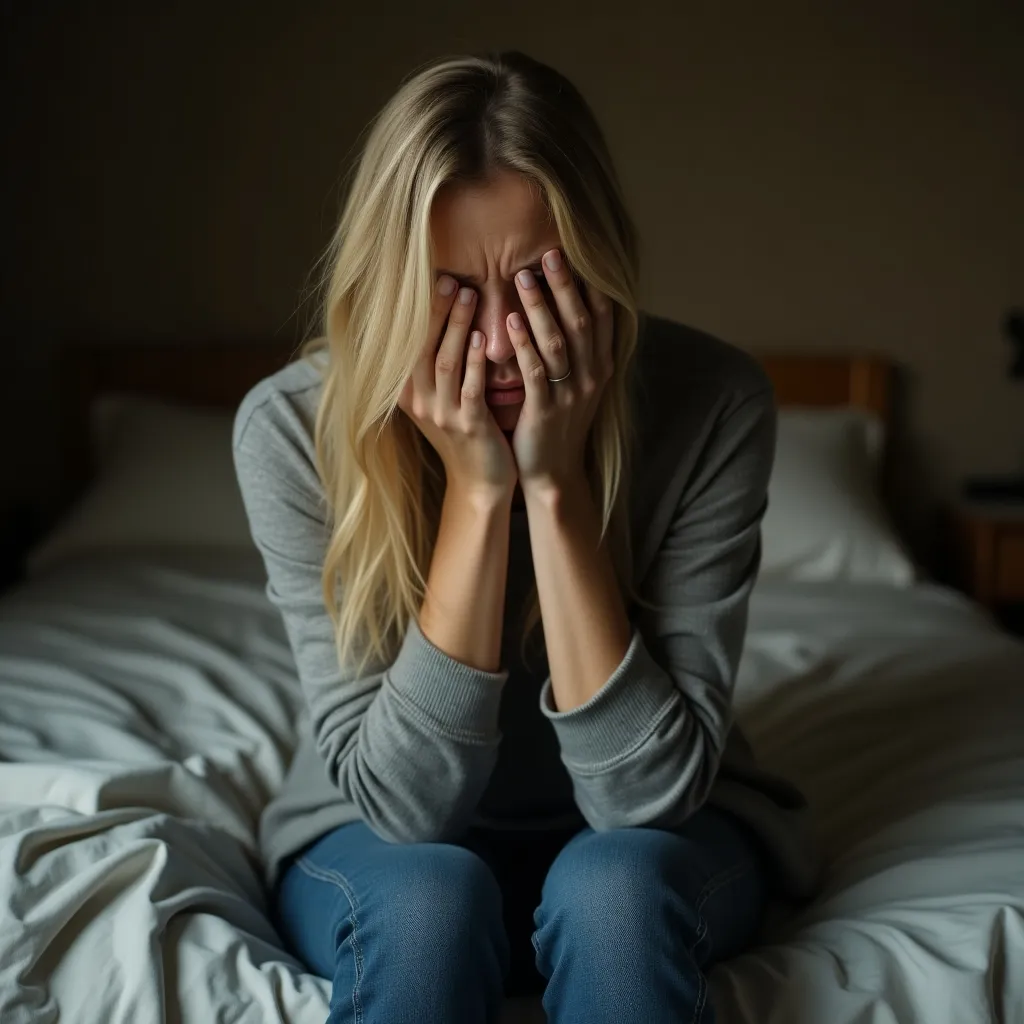
- Increases Anxiety and Worries
Loneliness can make people feel more anxious and fearful about the future or social situations. Singles may worry more about rejection or being vulnerable, which can make it harder to reach out or build new connections.
- Contributes to Depression
Feeling isolated and alone often leads to feelings of sadness or hopelessness. This can develop into depression, making it tough to find motivation or joy in everyday life.
- Lowers Self-Esteem and Self-Worth
Long periods of being single, especially when unwanted, can make a person question their value or feel like they aren’t “enough.” This drop in confidence can be reinforced by societal pressure that emphasizes romantic relationships as a marker of success.
- Leads to Social Withdrawal
Because of these feelings, singles may pull away from friends and social activities, which creates a cycle of isolation. Avoiding social contact can deepen loneliness and negative thoughts.
- Creates a Cycle of Negative Thinking
The combination of anxiety, depression, and low self-esteem often feeds into a loop where one negative feeling worsens the others. This cycle can make it difficult to break free from loneliness without support
Physical Health Consequences
Loneliness can have real effects on your body and overall well-being. Understanding how loneliness impacts physical health can help you recognize its importance and take steps to improve your social connections and self-care.

- Sleep Problems
Feeling lonely can make it harder to fall asleep or stay asleep, which means you don’t get the rest your body needs. Over time, poor sleep can affect your overall health and energy levels.
- Weakened Immune System
When you’re lonely, your immune system doesn’t work as well. This makes it easier to get sick and harder for your body to fight off infections.
- Higher Blood Pressure
Loneliness can cause your blood pressure to rise, which puts extra strain on your heart and blood vessels, increasing health risks.
- Constant Stress on the Body
Feeling lonely acts like a constant stress that affects your body similarly to chronic illnesses. This ongoing stress can leave you feeling tired, run down, or more prone to getting sick.
Social and Emotional Toll

Loneliness doesn’t just affect how we feel inside—it also impacts our social lives in a big way.
When people feel lonely, they often start to pull away from others, avoiding social situations and even distancing themselves from friends. This withdrawal can make existing friendships harder to maintain and make it challenging to form new connections.
On an emotional level, loneliness can stir up feelings like resentment or make you more sensitive to rejection, which only adds to the difficulty of reaching out or trusting others. All of this creates a tough cycle where loneliness leads to social struggles, and those struggles, in turn, deepen the feeling of being alone.
Understanding this can help us be more patient with ourselves and others, and find ways to gently reconnect.
Myths and Misconceptions About Being Single and Lonely
Being single often comes with a lot of misunderstandings and unfair stigma. Let’s take a moment to clear up some common myths that can make being single seem lonelier or harder than it really is.
- Myth: All Single People Are Inherently Lonely
Not true at all! Many single people have rich social lives full of close friendships, hobbies, and passions that keep them feeling connected and fulfilled—without needing to be in a romantic relationship. Being single doesn’t automatically mean being alone or lonely.
- Myth: Getting into a Relationship Will Cure Loneliness
Having a partner isn’t a magic fix. Loneliness usually comes from deeper feelings of disconnection or unmet emotional needs, and sometimes unhealthy relationships can actually make loneliness worse. Real connection and self-understanding are what count most.
- Myth: Singles Are Selfish or Anti-Social
This couldn’t be further from the truth. Many singles devote time and energy to their communities, personal growth, creative projects, or causes they care about. Choosing independence doesn’t mean ignoring others; it often means finding your own way to contribute and connect.
- Myth: Loneliness Only Affects Introverts or Older Adults
Loneliness can hit anyone—extroverts included—and research shows young adults sometimes feel lonelier than seniors. It’s a complex experience not tied to personality or age, but rather to how connected we feel in meaningful ways.
- Reality: Many Singles Lead Fulfilling, Connected Lives
Countless single people enjoy the freedom to travel, try new things, and build deep friendships and community bonds. They break the “lonely single” stereotype by living lively, joyful, and meaningful lives on their own terms.
Conclusion: Transforming Being Single and Lonely into Strength and Connection
Feeling single and lonely is something many people experience, but it doesn’t have to hold you back. By learning to understand loneliness, challenging the myths around being single, and using practical strategies like building friendships and caring for yourself, you can turn solitude into a time of growth and joy.
Remember, meaningful connection begins with you—so be kind to yourself, reach out when you need support, and celebrate your independence. With the right mindset and steps, you can thrive and find fulfillment in your single life.
Frequently Asked Questions
Can being single cause loneliness?
Being single doesn’t always cause loneliness, but feeling lonely can happen if you lack close connections or support.
At what age does loneliness peak?
Loneliness often peaks in young adults under 30, rises again in middle age (50–60), and peaks in very old age (80+).
What are simple ways to cope with feeling single and lonely?
Try hobbies, stay connected with friends, practice self-care, volunteer, or explore new social groups to reduce loneliness and enjoy your independence.



